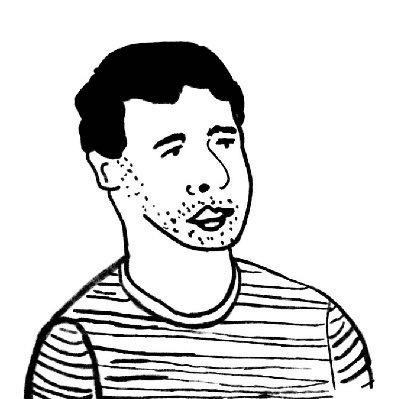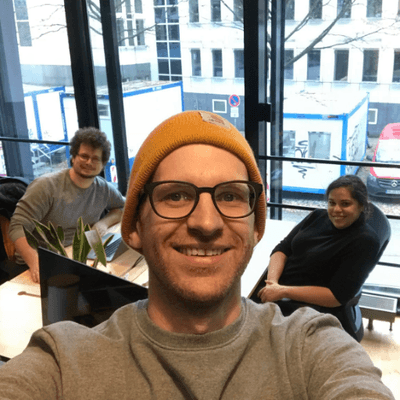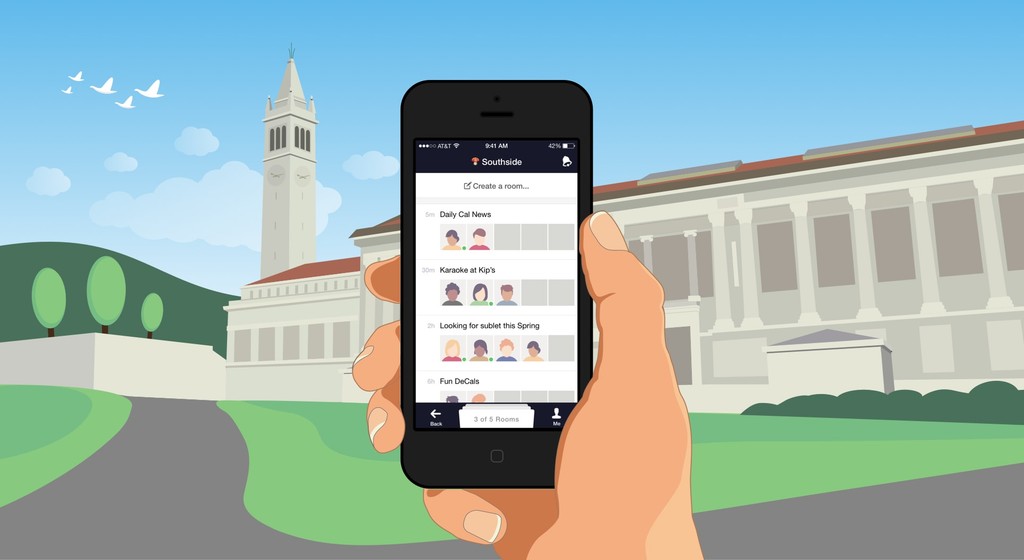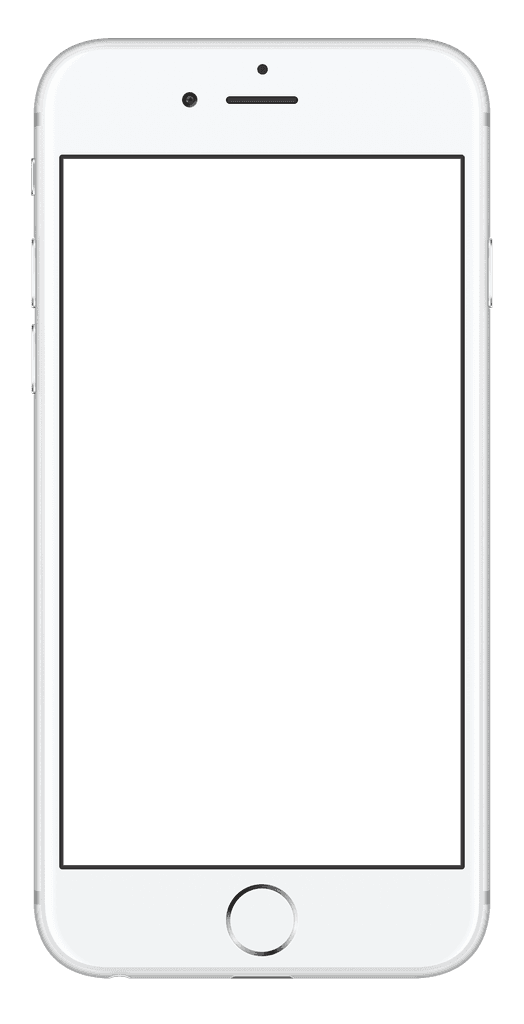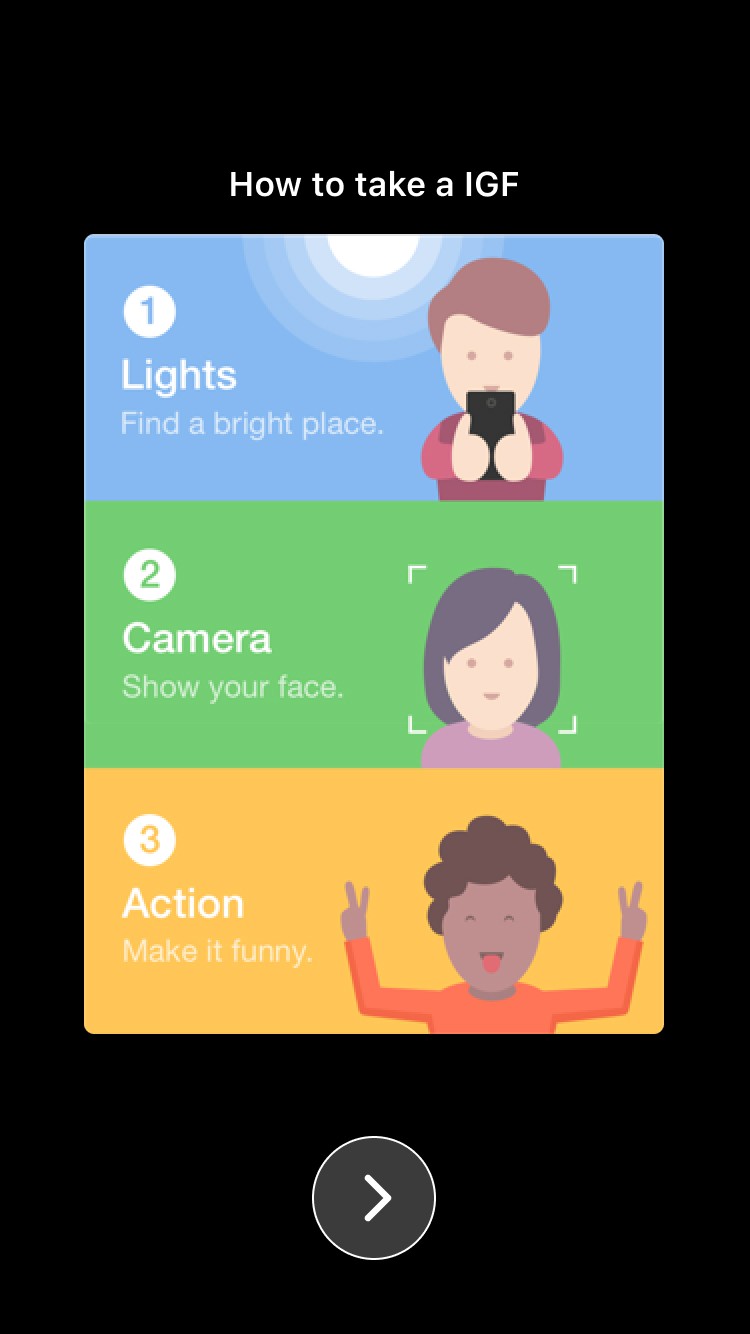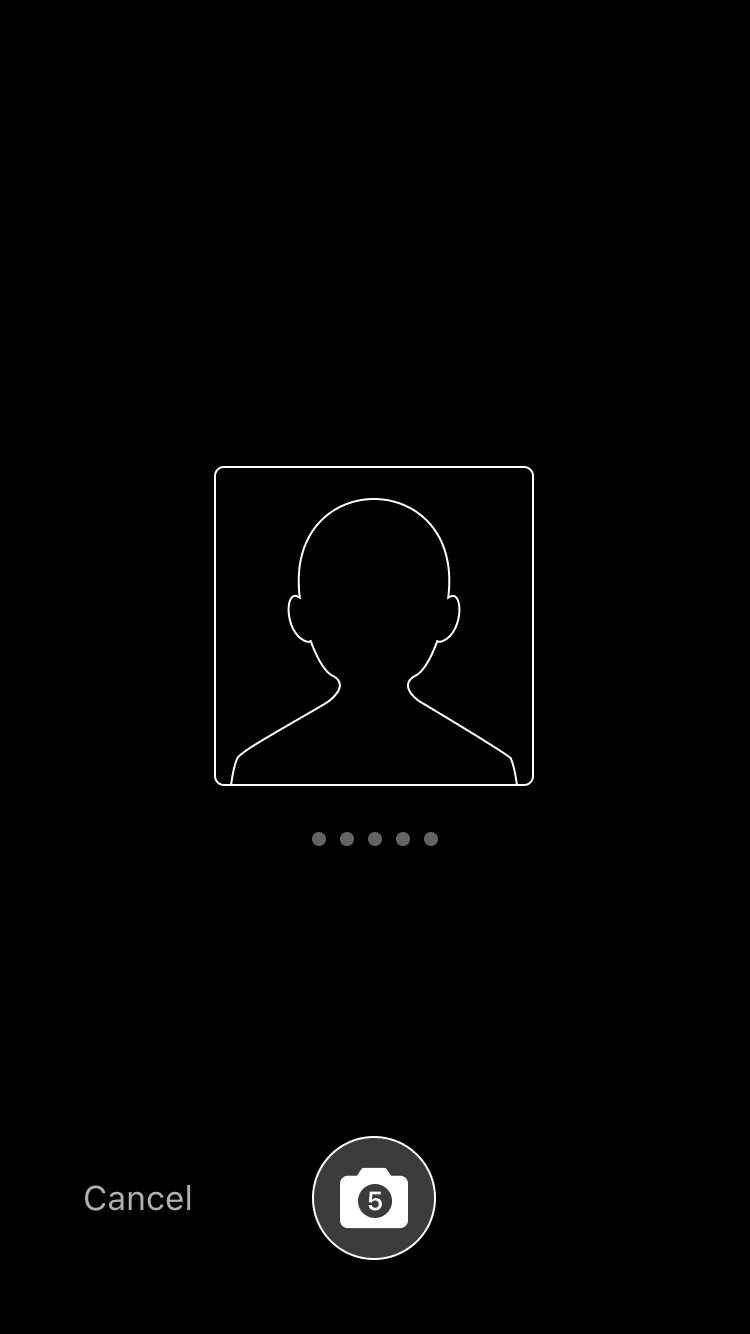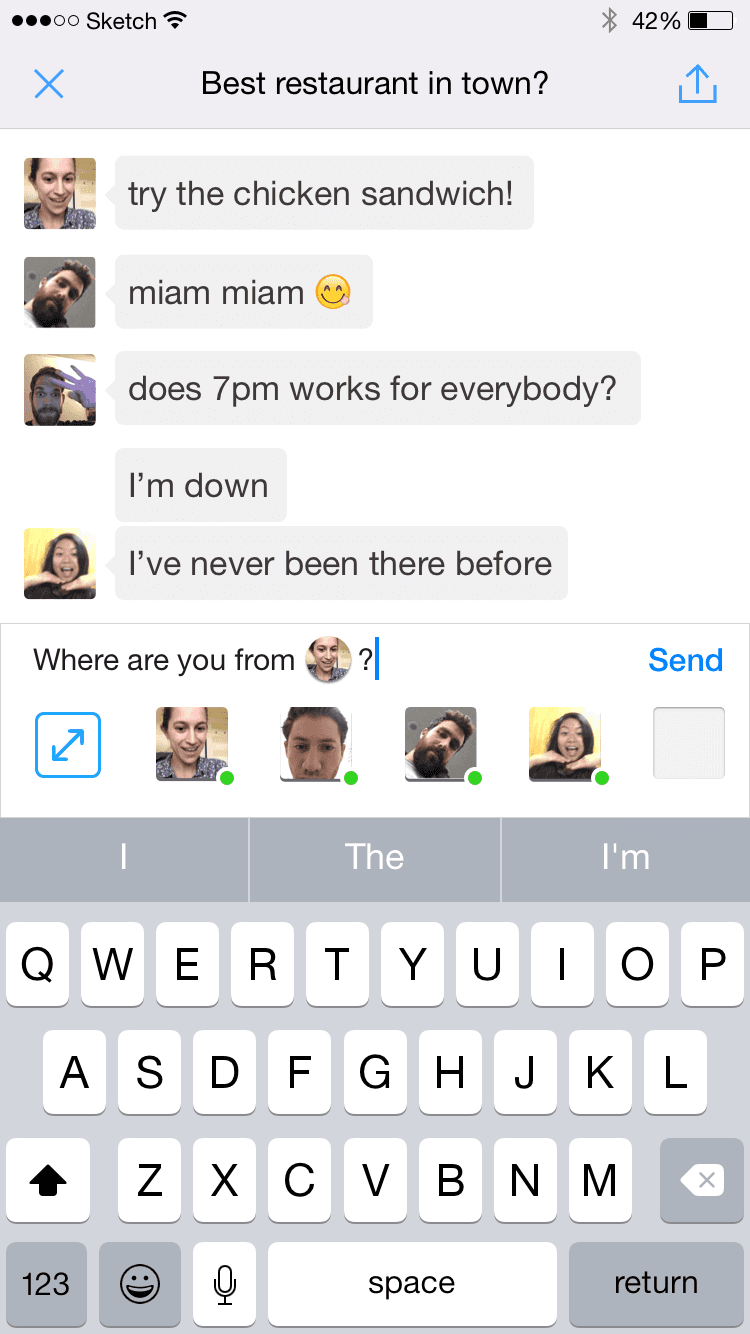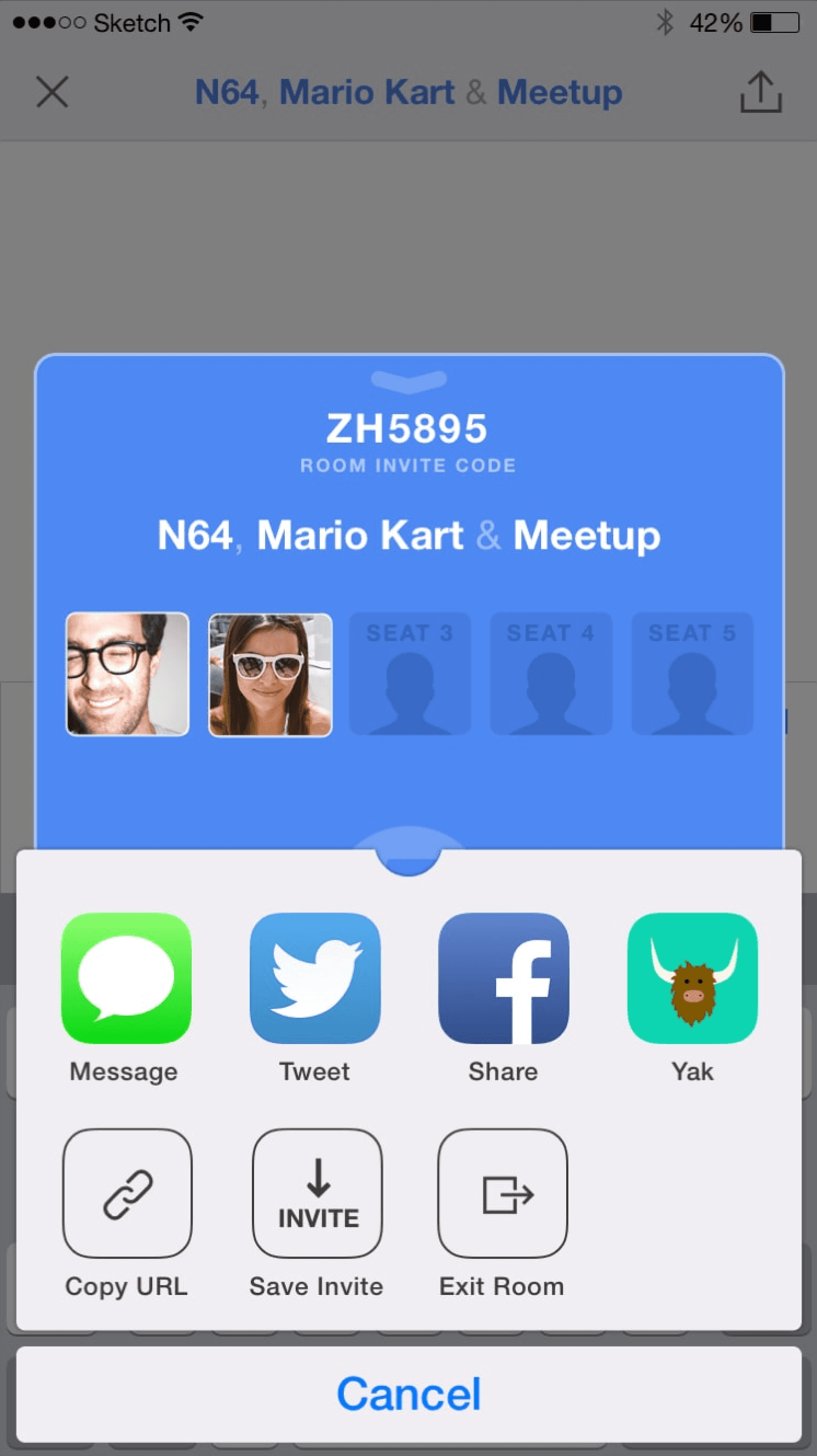Nicolas Duc-Dodon
The feed was the centerpiece of the app where users could browse, create and join location-based rooms.
Each room had a maximum limit of 5 seats. During user studies, we found that a five-person limit provided the right balance for a lively discussion without getting too noisy.
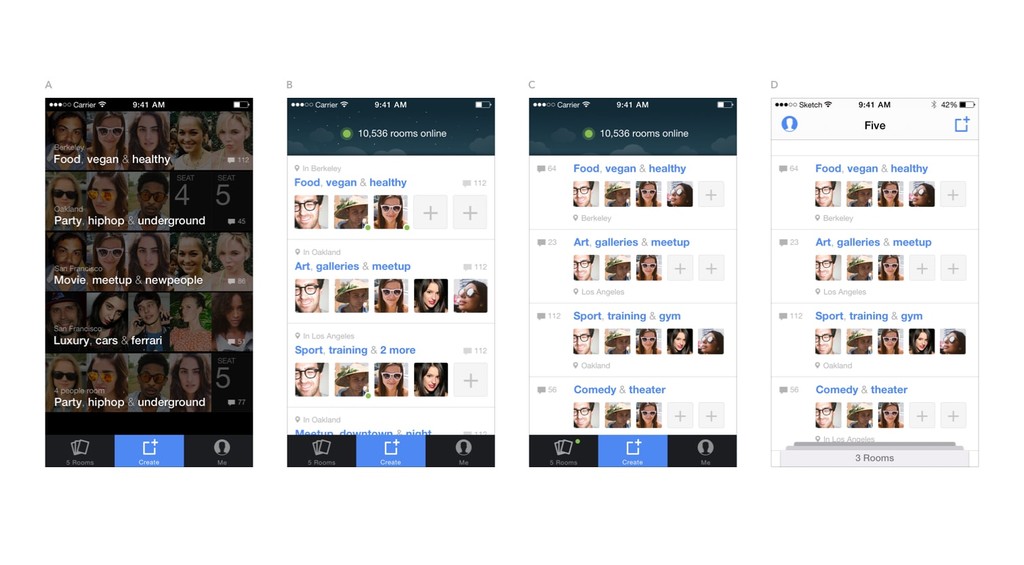
You don’t walk into a bar or party with your description on display. You cannot scroll up to see an actual conversation’s history. By not displaying an individual’s personal information, beyond a GIF and an optional bio, we gave users a degree of anonymity within their own communities that reduce the anxiety of mixing with different social groups.
To keep the rooms interesting and to also avoid potential idling problem, users could only be in 5 rooms at a time. The card drawer was a good metaphor to communicate the idea of a private space.
Each user was represented by their thumbnail. You could send messages, but also refer to other users by tapping their thumbnails. This action would insert an icon of their avatar into the input box.
When users were mentioned they would receive a push notification: "Someone mentioned you in this room".
Users' profiles were accessible behind the hamburger icon.
Whatever was said in a room could only be seen by those who were in the room when the message was sent.
Five was released on March 2015 and was developed at first for UC Berkeley alumni with a berkeley.edu e-mail address.
Five was downloaded by more than 1000+ students over the first week and received media coverage article from UC Berkeley News and Daily Cal.
Nicolas Duc-Dodon
Los Angeles, CA


